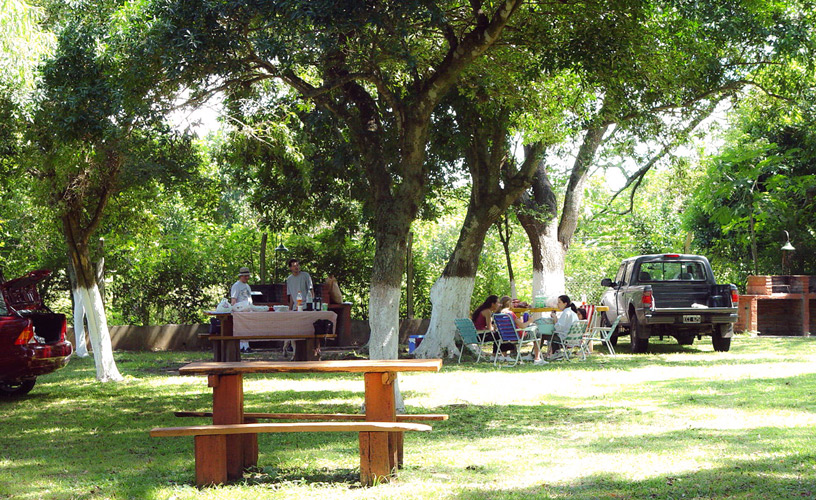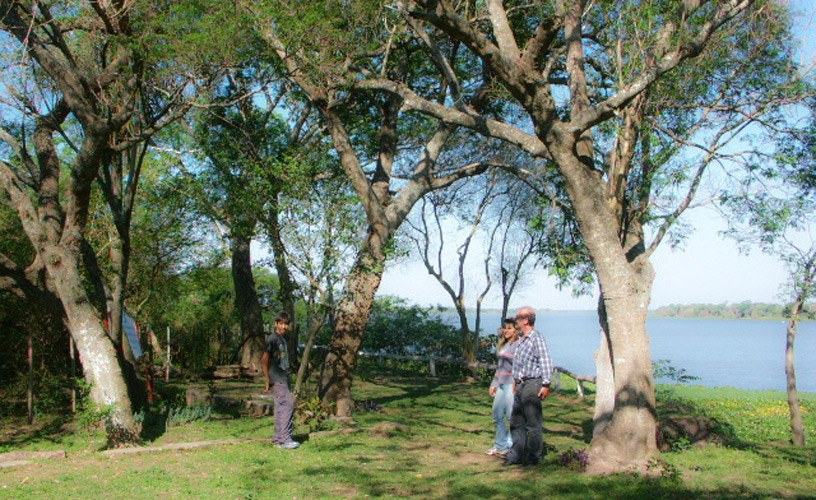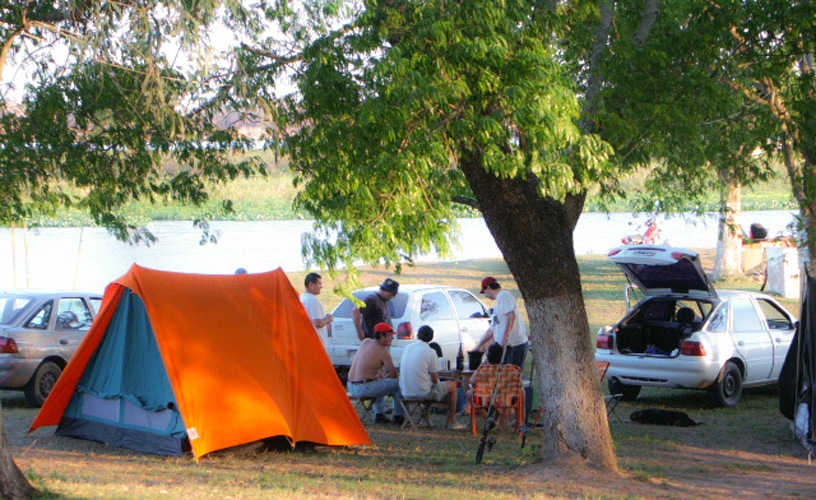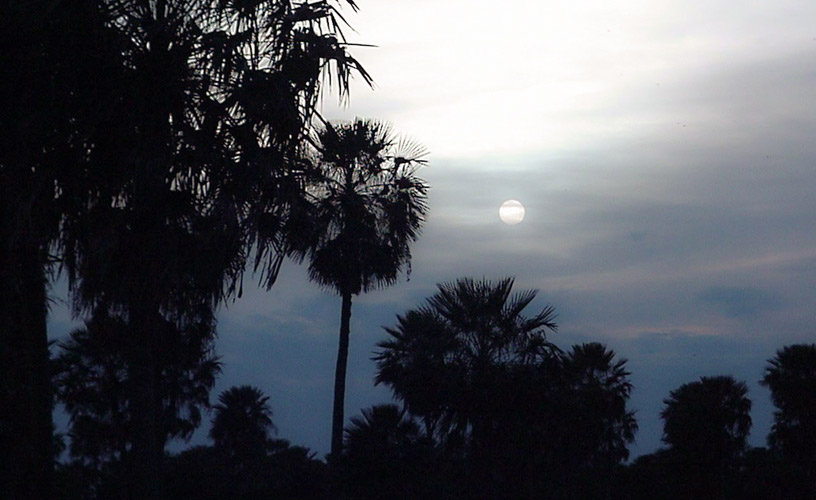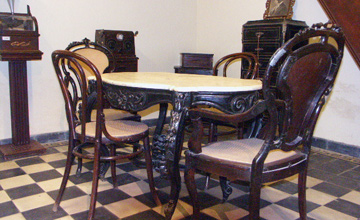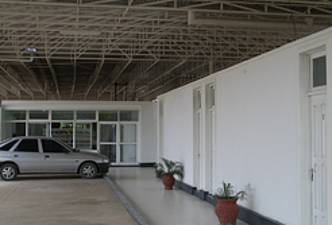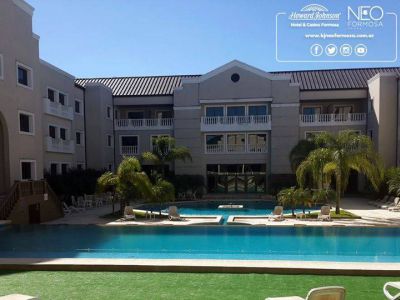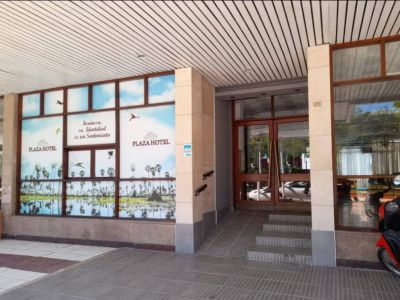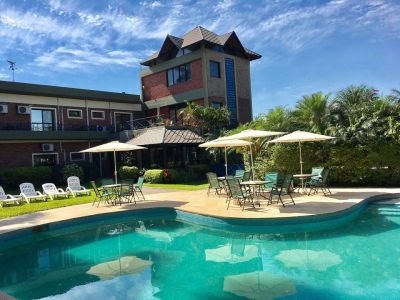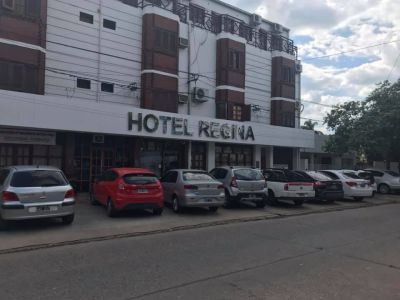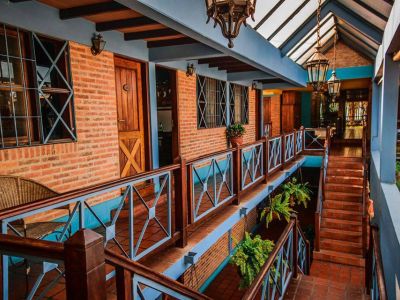Camping Chuqui-cué in Herradura
Formosa environment offers an unforgettable experience revealing features of subtropical habitat full of nature. A strong desire of melting into nature arises inside of us...
If you pass by Herradura area, you will not be surprised to see people walking with open umbrellas in their hands even though it is not raining. The fact is that sun rays fall perpendicularly here and the best way of protecting from them is using this kind of hand sunshades. In this place, located 44 kilometers away to the South of Formosa Capital City, we decided to camp to listen to the sounds of nature locked in the very heart of the forests that grow in galleries. Since vermins are abundant in this area, we decided to put up our tent in Chuqui-Cué camping site. Its clean and tidy park prevented us from meeting them. Chuqui-cué is located by the lagoon that due to its shape- horseshoe- provides the name to the city. Miriam and Daniel, owners of the place, welcomed us with cold sodas for us to "extinguish" the suffocating heat of our bodies. This, appart from being comforting made us realize that Formosa people are very kind everywhere.
A smooth breeze invited us to sit by their sides and start a chat about the camping site, plants, farm animals and their history. "Tired of daily vortex, city rush and mobile phones, one day we said "It´s enough", we sold everything and came to Herradura"- says Miriam as her self-convinced face shows that that decision was one of the most accurate made in their lives. Years before, this area had already received a settlement through a Jesuitic Mission which was called Mission of Timbó, founded in 1763 by Father Martín Dobrizhóffer and inhabited by Abipones. The name of the camping site has this origin since "Chuqui" was an Indian Chief of the tribe that colaborated in an intense way with one of those missions. The touristic resort has an infrastructure of 15 hectares which are enough to enjoy a comfortable stay. Contact with nature begins as soon as you get here. Grills, light, firewood, restrooms, changing rooms, canteen with elaboration of typical meals, boats guard, parking lot and an enviable wood are some of the services that make Chuqui-Cué a place to be chosen. After putting up our tent, we started going around the place and go on a botanic tour, trying to recognise the vegetal species spread all over the place. Thus, we came across timboes, lapachoes, guayacanes, ceiboes, laurels and a great amount of flowers- a real paradise which is ideal to rest! Young people and others who are not so young have the opportunity of playing soccer, volleyball, fishing or practising water sports in the same lagoon. For the youngest, Chuqui-Cué has a didactic and educational farm which is full of ducks, geese, pigs, sheeps and hens. Little by little the sun set, human silence turned stronger as the natural one seemed to awake from a long nap. Closing our eyes and letting the sound of the forest invade us is a hallucinating experience. Trying to identify each of the songs of night birds and animals is an amusing game that sometimes betrays us making us think that a jaguar may be close. Even when the resort has electricity, it is the moon the one that illuminates the whole place. Tunes of guitars, fires and voices lost in the warm darkness remain silent until dawn. Awaking while observing the sun rise from Herradura coast is another postcard you cannot miss. Orange rays reflected on the calm waters of the lagoon invite you to wake up as early as you can to take as much profit as you can from your stay. Horse rides, bike rides and walks around the area take hold of time. At midday, after having an exquisite surubí with creole sauce made by Miriam, we pick up our things, say goodbye to the owners of the site and depart. However, we promise to come back since we arrived as customers but left being friends. We depart from Herradura heading to the Capital of the Province and there is something wierd inside of us: legendary people remained in our hearts, they invaded ourselves, sounds of nature were also there called by us "forest sounds".
Marcelo Sola
Marcelo Sola
54-3717-15680732 / 15675702
Located in Herradura, 44 kilometers away from Formosa Capital Ciy. You must take Nº11 National Route, then Nº 1 Provincial Route and finally, you must take the neighbor road.
